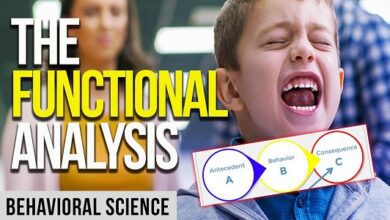Different types of eating disorders definition and causes
It is estimated that eating disorders affect more than 70 million people worldwide, thus affecting the physical and mental health of patients. Eating disorders are very serious psychiatric illnesses that need to be identified, diagnosed and treated by trained professionals. Here we will present you the different types of eating disorders.
WHAT ARE EATING DISORDERS
According to the Diagnostic and Statistical Manual of Mental Disorders, 5th edition (DSM-5), prepared by the American Psychiatric Association, eating disorders are psychiatric illnesses characterized by persistent changes in eating or eating behavior .
There are several types of eating disorders, including anorexia nervosa, bulimia nervosa and binge eating, for example. All cause harm to the patient’s physical health and psychosocial functioning.
CAUSES OF EATING DISORDERS
Eating disorders are multifactorial and can be caused by several triggers, such as:
- overvaluation and idealization of a thin body;
- negative family environment with low communication between members;
- traumatic experiences such as bullying and sexual abuse;
- individual’s temperament and personality;
- other associated psychiatric illnesses;
- genetics;
- constant body dissatisfaction associated with frequent attempts at restrictive diets, among others.
Types of eating disorders (TCA)
The eating disorders (TCA) that we can mention are the following:
bulimia nervosa
It is characterized by the presence of inadequate compensation behaviors regarding food intake, causing self-induced vomiting, fasting, laxatives, diuretics, or increased physical activity. There are also episodes of binge eating, which is an uncontrolled intake, large amounts of food are eaten in a short time and usually without anyone seeing, in secret, for this reason this disorder can go unnoticed.
rumination disorder
This is characterized by repeated regurgitation of food, and that passes from the stomach to the mouth, in the mouth it is chewed again. This disorder makes it impossible to maintain an adequate body weight.
anorexia nervosa
It is the reduction and restriction of nutritional intake, which generates significant weight loss. Weight loss can occur by restricting food accompanied by an intense exercise routine, by laxative abuse, or by inducing vomiting. The person suffering from this disorder is afraid of gaining weight and becoming obese. He has body dissatisfaction, there is a distortion of the image and a great concern about weight, figure and diets.
Anorexia nervosa causes a negative impact on the person who suffers from it, it affects all aspects of their life at work, social, family, academic and emotional level. The symptoms appear progressively and a lot of attention must be paid to be able to detect them. This early detection is very important to achieve a diagnosis and place the appropriate treatment.
Avoidant-restrictive eating disorder
This implies the rejection of food and capricious extreme modifications of what is a typical or normal eating behavior, it may be accompanied by a rumination disorder.
Binge eating disorder
This represents excessive and recurrent compulsive eating, it is similar to bulimia nervosa, its main difference is that the person suffering from this disorder does not perform compensatory acts (laxatives, vomiting, etc.) by not doing this type of behavior the increase of weight can be significant leading to obesity.
Eating Disorder Not Otherwise Specified (NOSD)
They are pictures between bulimia nervosa or anorexia nervosa, whether they are in their initial stage or in the process of recovery. This has symptoms that are related to eating behavior, without meeting criteria to be diagnosed as bulimia nervosa or anorexia. One speaks of NET when restrictions, distortion of body image, weight loss occur in a person, without presenting amenorrhea. The fact that it is an incomplete picture of bulimia or anorexia does not mean that it is less serious.
New diagnoses:
Orthorexia : this is the obsession and fixation with food or healthy food.
Food addiction: It is the addiction or intense desire towards some type of specific food.
Vigorexia : diet combined with compulsive exercises to build muscles.
Diabulimia : to lose weight an omission of insulin is performed.
Obesity : obesity is not a consequence of genetics or nutritional alterations, it is rather seen from a psychological point of view. Lack of control is the main discomfort, and for this reason the person performs binge eating, causing weight gain and obesity. It is known that with obesity come health problems, being its physical consequence the main one. Social and psychological consequences are also taken into account.




